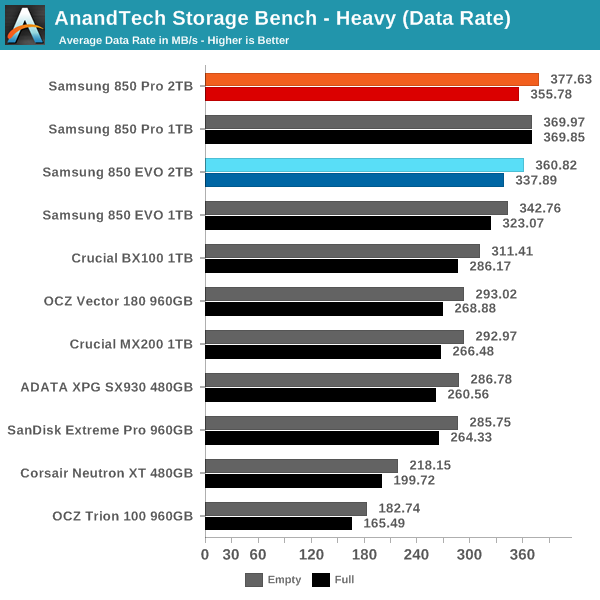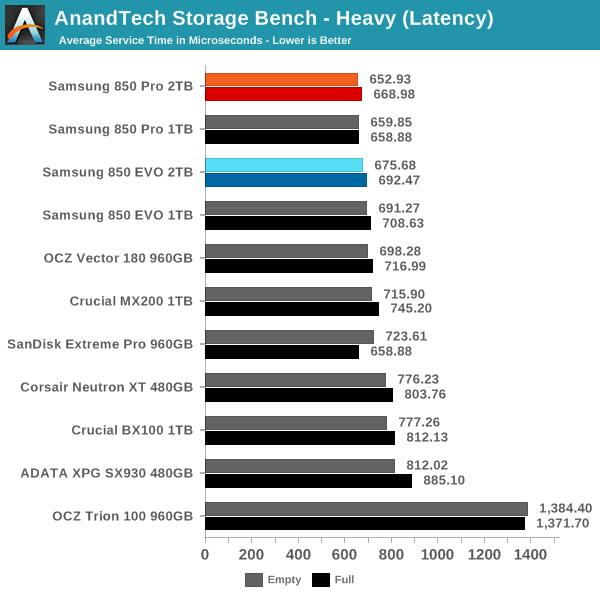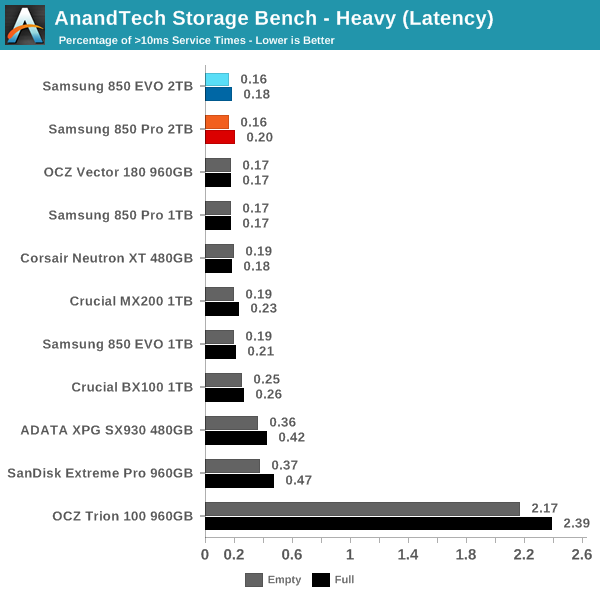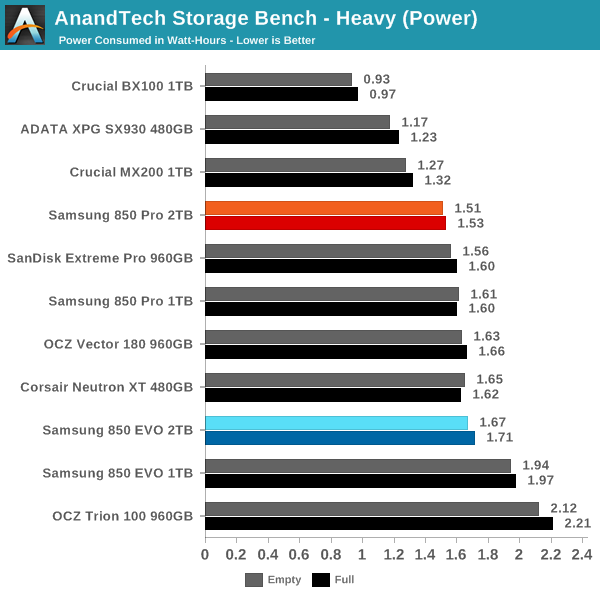The 2TB Samsung 850 Pro & EVO SSD Review
by Kristian Vättö on July 23, 2015 10:00 AM ESTAnandTech Storage Bench - Heavy
While The Destroyer focuses on sustained and worst-case performance by hammering the drive with nearly 1TB worth of writes, the Heavy trace provides a more typical enthusiast and power user workload. By writing less to the drive, the Heavy trace doesn't drive the SSD into steady-state and thus the trace gives us a good idea of peak performance combined with some basic garbage collection routines. For full details of the test, please refer to the this article.

In our Heavy trace, the 1TB and 2TB Pros are practically on par. The 2TB EVO enjoys a slight advantage over the 1TB model, which is likely due to the larger SLC cache being able to cache more writes.


The 2TB models are again more power efficient than their 1TB counterparts. It's a welcome improvement since especially the 850 EVO isn't the most power efficient drive for laptops (at least when compared against the BX100).











66 Comments
View All Comments
vFunct - Thursday, July 23, 2015 - link
Any info about the well known TRIM bug in these drives?vFunct - Thursday, July 23, 2015 - link
TRIM bug reported here: https://blog.algolia.com/when-solid-state-drives-a...and here:
https://bugs.launchpad.net/ubuntu/+source/fstrim/+...
Kristian Vättö - Thursday, July 23, 2015 - link
The bug turned out to be in the Linux kernel, not in Samsung SSDs, as you can see in the first link once you scroll down the updates. Samsung has developed a kernel patch to fix the issue too.BillyONeal - Thursday, July 23, 2015 - link
Well they patched the kernel to work around the firmware bug; but that doesn't mean it was a kernel bug.Kristian Vättö - Thursday, July 23, 2015 - link
There was never a problem with TRIM under Windows or OS X.DanNeely - Thursday, July 23, 2015 - link
IF you follow through to the mailing list discussion for the bug fix, the problem is with the kernel overwriting a pointer when it shouldn't be. If I'm following it correctly, it impacts any SSD brand in RAID0 with trim enabled.leexgx - Thursday, July 23, 2015 - link
did not affect the Intel SSDsmooninite - Thursday, July 23, 2015 - link
Kristian,There are two forms of TRIM these days. The original, Windows-supported, inline TRIM and the latest, queued TRIM. The latter is what is the problem on Samsung drives. I encourage you to fully investigate the issue.
Inline TRIM is known to cause delays with certain drives and certain host systems because it can take over IO on a drive and freeze other commands until TRIM is complete. The number of drives and systems effected is quite low, but it is enough for some people to disable TRIM or use a nightly TRIM script (fstrim).
sustainednotburst - Friday, July 24, 2015 - link
Algolia stated Queued Trim is disabled on their systems, so its not related to Queued Trim.editorsorgtfo - Thursday, July 23, 2015 - link
That was my first reaction, too. But judging from the message on the mailing list and the patch, it is indeed a kernel issue and not specific to Samsung drives. It seems so stem from using queued TRIM on software RAID0, which is a moderately questionable configuration anyway. I guess Algolia did not tell the whole (probably embarrassing) story since there is only one mention of Linux software RAID in the entire article. Maybe they didn't configure their Intel drives the same way?I was set on an Intel 730 for a 7mm SATA role up until a few minutes ago because I had read about this, too. But in light of this, one can probably use Kristian's "best 6Gbps SATA SSD" without excessive worry.